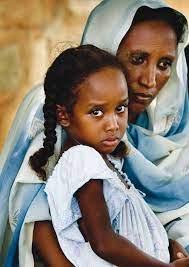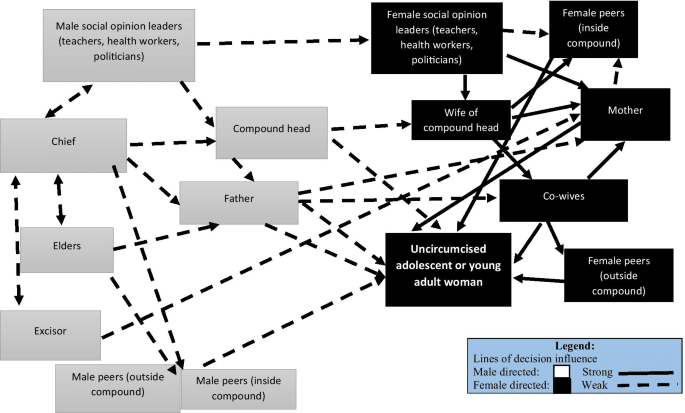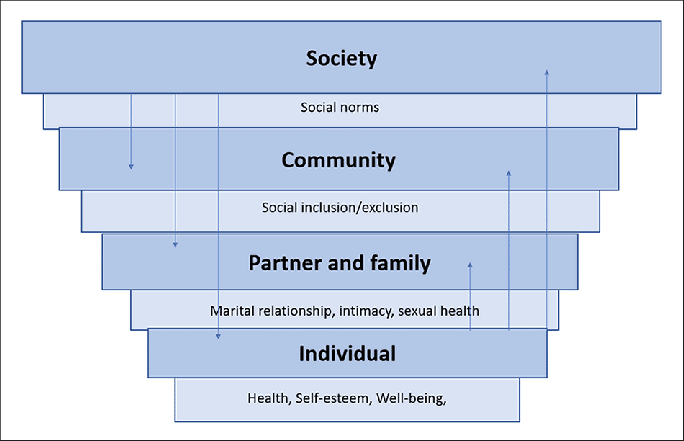https://www.ncbi.nlm.nih.gov/pmc/articles/PMC6860922/
The intergenerational transmission of female genital mutilation (FGM) perpetuates a harmful cycle whereby girls are subjected to the practice as a rite of passage or to conform to societal expectations. Rooted in deeply ingrained cultural beliefs and traditions, FGM is often passed down from one generation to the next, perpetuating harmful gender norms and reinforcing power imbalances within communities.
At the heart of this phenomenon lies the belief that FGM is a necessary cultural practice, ingrained in notions of purity, modesty, and control of women’s sexuality. Girls are often subjected to FGM as a rite of passage into womanhood, symbolizing their readiness for marriage and motherhood. Additionally, FGM is viewed as a means of preserving family honor and ensuring social acceptance within the community.

Furthermore, societal expectations and pressures play a significant role in perpetuating the intergenerational transmission of FGM. Families may feel compelled to adhere to FGM traditions due to fear of social ostracization, pressure from relatives, or the desire to uphold cultural identity. In some cases, girls may undergo FGM to avoid stigma or discrimination within their communities, perpetuating the cycle of harm.

Moreover, the lack of education and awareness about the consequences of FGM contributes to its intergenerational transmission. Many communities are unaware of the health risks and human rights violations associated with FGM, leading to its continued practice generation after generation. Without access to accurate information and resources, families may perpetuate harmful traditions without fully understanding the impact on their daughters’ well-being.
Breaking the cycle of intergenerational transmission requires a multifaceted approach that addresses the root causes of FGM and empowers communities to abandon harmful practices. Education and awareness-raising initiatives play a crucial role in challenging cultural norms and dispelling myths surrounding FGM, empowering families to make informed choices about their daughters’ health and well-being. Additionally, economic empowerment programs and alternative rites of passage offer viable alternatives to FGM, providing families with the support and resources needed to resist societal pressures and embrace change.

In conclusion, the intergenerational transmission of FGM perpetuates a cycle of harm that must be addressed through comprehensive interventions aimed at promoting gender equality, human rights, and community empowerment. By challenging harmful beliefs and providing families with alternatives to FGM, we can break the cycle of intergenerational transmission and create a future where every girl can grow up free from the threat of harm and discrimination.




